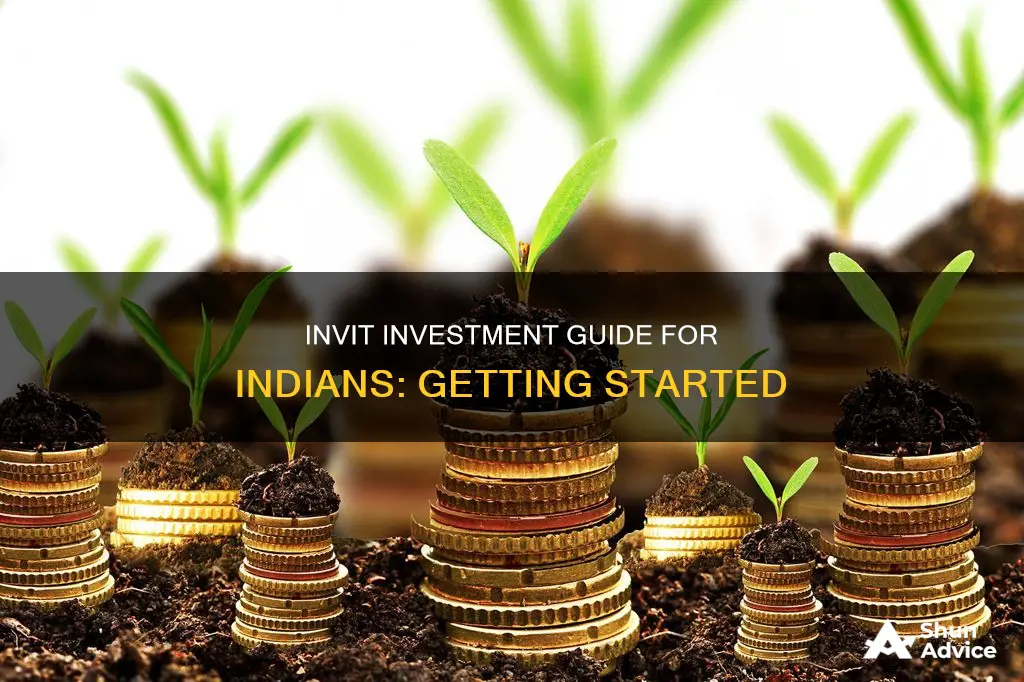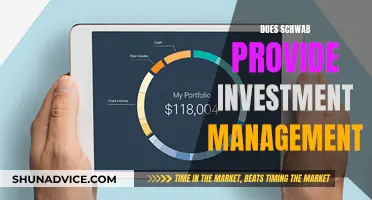
Infrastructure Investment Trusts (InvITs) are investment vehicles that allow investors to put their money into infrastructure projects. They are similar to mutual funds, but they invest in infrastructure assets like toll roads, power transmission lines, and pipelines. InvITs are designed to give retail investors access to investment opportunities in infrastructure projects that were previously only available to large institutional investors. They are regulated by the Securities and Exchange Board of India (SEBI) and must distribute at least 90% of their income to investors. In this article, we will discuss how to invest in InvITs in India, including the benefits, risks, and potential returns.
| Characteristics | Values |
|---|---|
| Definition | Investment vehicles that allow investors to invest in infrastructure projects |
| Objective | Provide retail investors with access to investment opportunities in infrastructure projects that were previously only available to large institutional investors |
| Investment type | Equity and debt instruments |
| Investment structure | Similar to mutual funds or REITs |
| Investment destination | Infrastructure assets like toll roads, power transmission lines, and pipelines |
| Investment creation | Created by sponsors, typically infrastructure companies or private equity firms |
| Investment returns | Through regular distributions and potential capital appreciation |
| Regulating body | Securities and Exchange Board of India (SEBI) |
| Investment distribution | At least 90% of their income must be distributed to investors |
| Investment limit | No minimum investment limit |
| Taxation | Different tax benefits compared to corporations |
| Ideal for | Any investor class looking for portfolio diversification with steady and predictable cash flows |
What You'll Learn

Choose a broker
When choosing a broker to help you invest in InvITs in India, there are several factors to consider. Firstly, it is important to select a broker with experience in the Indian market and understands the regulatory environment. The broker should also have a good reputation and be registered with the Securities and Exchange Board of India (SEBI), which is the main regulator for the Indian capital markets. You can verify their registration by checking the SEBI website.
It is also crucial to evaluate the broker's execution capabilities, including their ability to efficiently execute trades on your behalf and provide access to real-time market data and research. Consider the range of products and services they offer, and whether they provide online trading platforms that meet your needs. Look for a broker with competitive fees and commission structures, ensuring you understand all associated costs, such as account maintenance fees, transaction charges, and any other applicable expenses.
Additionally, assess the broker's customer service quality and responsiveness. This includes evaluating their availability, communication channels, and ability to provide timely and accurate support. You may also want to consider the broker's financial stability and ensure they have robust risk management practices in place to protect your investments.
Before making a decision, review their track record, including their success rate in executing trades, and seek out testimonials or reviews from their existing or previous clients. It is also advisable to compare the services and fees of multiple brokers before making an informed decision.
Ally Invest: Portfolio Margin Trading Options Explored
You may want to see also

Open a Demat and trading account
To open a Demat and trading account, you must first choose a broker or depository participant (DP). A DP acts as an intermediary between the investor and the depository (either NSDL or CDSL).
Once you have chosen a broker, you can begin the process of opening an account. This typically involves verifying your identity and contact details, e-signing documents, and linking your bank account. Some brokers may also require you to submit documents such as proof of identity and address, bank statements, and a photo of your signature.
It is important to note that you cannot have two Demat accounts with the same broker, but you can have multiple Demat accounts with different brokers. Additionally, there may be account opening fees and annual maintenance charges associated with your Demat account, although some brokers offer these services for free.
By opening a Demat account, you can buy, sell, and hold stocks, bonds, mutual funds, and other financial securities electronically, eliminating the need for physical share certificates. This not only saves time and transaction costs but also provides enhanced security and reduced risks of loss, theft, or damage to paper certificates.
Invest Wisely: Understanding Managed Futures for Beginners
You may want to see also

Add funds and log in to your trading account
To add funds to your trading account, you will need to transfer money from your bank account to your brokerage account. The process for doing this will vary depending on the brokerage you are using, but it will typically involve logging into your brokerage account and following the instructions to transfer funds. It is important to note that there may be minimum investment requirements for InvITs, and you should check with your brokerage firm to find out their specific requirements.
Once you have transferred the funds to your brokerage account, you can then use those funds to purchase InvIT units on the stock exchanges where they are listed, such as the NSE and BSE. To do this, log into your brokerage account and place a buy order for the InvIT units using the instrument symbol. The minimum application value for an IPO has been reduced to a range of INR 10,000-15,000, and there is no minimum investment limit for InvITs, so you can purchase even one unit on the stock exchanges.
It is important to remember that investing in InvITs carries certain risks, including market risks and dependency on the performance of the underlying infrastructure assets. The value of InvIT units can fluctuate based on market conditions, and the returns may be impacted if the assets fail to generate the expected income. Therefore, it is essential to carefully consider the risks and evaluate the underlying assets before investing in InvITs.
Additionally, when investing in InvITs, it is crucial to understand the tax implications. Distributions to unit holders can include a combination of interest income, dividend income, and other sources, each with its own tax treatment under the Income Tax Act, 1961. It is recommended to consult a tax advisor to understand the specific tax consequences of investing in InvITs.
Where to Find National Savings and Investments
You may want to see also

Research and select stocks
Before investing in an InvIT, it is crucial to conduct thorough research and carefully select the right investment opportunities. Here are some key considerations to keep in mind:
Understanding InvITs
Firstly, it is important to understand the nature of Infrastructure Investment Trusts (InvITs). InvITs are investment vehicles that enable individuals to invest in infrastructure projects. They are designed to provide retail investors with access to opportunities that were previously only available to large institutional investors. InvITs are similar to mutual funds but focus on investing in infrastructure assets such as toll roads, power transmission lines, and pipelines.
Investment Objectives
Clarify your investment objectives and risk tolerance before selecting an InvIT. Consider whether you are seeking stable and predictable cash flows, long-term capital appreciation, or a combination of both. InvITs can offer a steady income stream through regular distributions and potential capital appreciation over time.
Due Diligence
Conduct extensive due diligence on the InvITs you are considering. Review the prospectus, financial statements, and regulatory filings to gain a comprehensive understanding of the trust's operations, financial health, and risk factors. Assess the track record and experience of the sponsor, investment manager, and project manager.
Infrastructure Sector Analysis
Research the specific infrastructure sector in which the InvIT intends to invest. Evaluate the industry trends, regulatory environment, and potential growth prospects. Consider the stability and long-term viability of the sector, as well as any factors that may impact the performance of the underlying infrastructure assets.
Risk Assessment
Carefully evaluate the risks associated with investing in InvITs. These may include market risks, dependency on asset performance, interest rate sensitivity, and regulatory changes. Understand the potential impact of these risks on your investment and ensure they align with your risk tolerance and investment objectives.
Comparison and Diversification
Compare different InvIT options available in the market. Assess their investment strategies, track records, and fee structures. Diversify your portfolio by investing in multiple InvITs focusing on different infrastructure sectors to mitigate the risk of concentrating your investments in a single sector.
Long-Term Potential
Consider the long-term potential of the InvIT. Evaluate the growth prospects of the underlying infrastructure assets and the overall sustainability of the trust's investment strategy. Look for InvITs with a strong track record of distributing stable and growing income to investors.
Regulatory Compliance
Ensure that the InvIT you select is compliant with the regulations set by the Securities and Exchange Board of India (SEBI). SEBI has specific guidelines for the formation and operation of InvITs, including distribution requirements and leverage limits. Understanding these regulations will help protect your investment and ensure the trust adheres to the necessary standards.
Remember, investing in InvITs involves careful consideration of your financial goals, risk appetite, and the specific characteristics of the infrastructure sector. Conducting thorough research and due diligence will help you make informed decisions and potentially enhance the success of your investments.
Building a Robust Investment Portfolio at 50
You may want to see also

Decide your investment amount
When deciding how much to invest in InvITs in India, it is important to consider the associated risks and benefits. InvITs (Infrastructure Investment Trusts) are investment vehicles that allow investors to put their money into infrastructure projects, providing an opportunity to diversify their portfolios. Here are some key factors to consider when determining your investment amount:
Risk Assessment
Firstly, evaluate the risks associated with InvITs. While they offer stable and predictable cash flows, the performance of InvITs depends on the underlying infrastructure assets and their ability to generate income. For example, factors such as lower-than-expected traffic on toll roads or regulatory issues can impact the returns. Therefore, conduct thorough research on the specific InvIT and its underlying assets before deciding on the investment amount.
Investment Goals
Clarify your investment goals and risk appetite. InvITs are ideal for investors seeking regular and steady income, as they are high dividend-paying instruments. Consider your financial objectives, time horizon, and risk tolerance to determine how much you are comfortable investing in InvITs. Diversifying your portfolio with InvITs can enhance stability and reduce overall risk.
Investment Amount Flexibility
InvITs offer flexibility in terms of investment amount. There is no minimum investment limit for InvITs, and investors can buy or sell even a single unit on stock exchanges. This makes it attractive for small-ticket investors. However, when investing in InvITs through an IPO, the minimum investment amount is typically Rs. 10 lakh. Therefore, assess your financial capacity and choose an amount that aligns with your goals and comfort level.
Due Diligence
Conduct thorough due diligence on the specific InvIT you are considering. Review the trust's financial statements, the performance of its underlying assets, and the track record of the sponsor and investment manager. Evaluate the stability of the income generated by the InvIT and the potential for capital appreciation. Consider seeking advice from a financial advisor to make an informed decision.
Long-Term Prospects
Consider the long-term prospects of the Indian infrastructure sector and the specific projects the InvIT invests in. Infrastructure development in India has promising growth potential, and InvITs provide an opportunity to participate in this growth. Assess the stability and scalability of the infrastructure projects to make an informed decision about the investment amount.
In conclusion, deciding your investment amount in InvITs requires careful consideration of the associated risks, your investment goals, and the specific characteristics of the InvIT. Conduct thorough research, assess your financial capacity and risk appetite, and seek professional advice if needed to determine an investment amount that aligns with your financial objectives and risk tolerance.
Understanding Managed Investment Trusts: A Comprehensive Guide
You may want to see also
Frequently asked questions
Gold is a good investment because it helps beat inflation, diversify your portfolio, and balance currency devaluation. It is also a highly liquid asset, which means it can be easily converted to cash in times of need.
There are several ways to invest in gold in India, including buying physical gold (such as jewellery, coins, or bars), investing in gold exchange-traded funds (ETFs), gold mutual funds, sovereign gold bonds, or digital gold.
While there is no limit to gold investment in India, it is recommended that gold investments should not exceed 10% of your overall account value.







